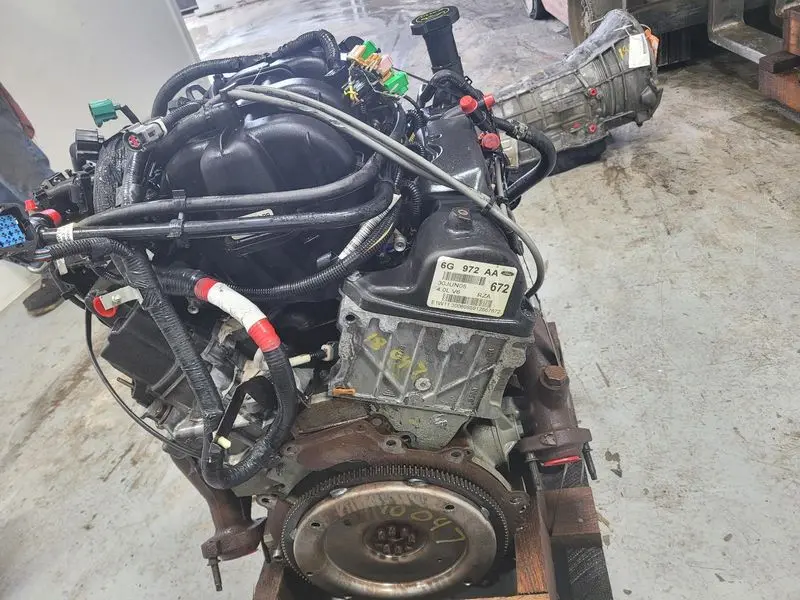How to Maintain and Optimize the 2.2 Ford Ranger Engine for Long-Lasting Performance
How to Maintain and Optimize the 2.2 Ford Ranger Engine for Long-Lasting Performance
Blog Article
What Makes a Vehicle Engine Run Efficiently: Leading Tips for Ideal Treatment
The smooth procedure of a car engine is fundamental to both performance and longevity, making optimal care an important responsibility for vehicle proprietors. What specific actions should you focus on to guarantee your engine stays in peak problem?
Regular Oil Modifications
One of one of the most vital elements of vehicle maintenance is guaranteeing your engine obtains normal oil modifications. Engine oil lubricates internal elements, minimizes friction, and aids maintain optimal operating temperature levels. Gradually, oil breaks down due to heat, impurities, and the natural byproducts of burning, causing reduced performance and prospective engine damage.
Most makers recommend transforming the oil every 5,000 to 7,500 miles, however this interval can differ based on driving problems and oil type. Synthetic oils may enable for longer periods between changes. Regular oil adjustments not only boost engine performance yet also improve fuel performance, as clean oil advertises smoother operation.
Ignoring oil changes can lead to sludge build-up, which impairs flow and can lead to serious engine problems. It is essential to inspect oil degrees on a regular basis and monitor for any type of uncommon changes in color or uniformity, which might show contamination or degradation.

Keeping Coolant Degrees
Keeping proper coolant levels is important for stopping engine getting too hot and making certain optimal performance. The coolant, usually a mixture of water and antifreeze, distributes with the engine, taking in warm and protecting against thermal stress and anxiety. Not enough coolant can lead to increased engine temperatures, which may cause extreme damages or perhaps complete engine failing.
To keep ideal coolant degrees, on a regular basis evaluate the coolant storage tank, generally situated in the engine bay. Make sure the coolant is filled up to the suggested mark, as indicated in your vehicle's proprietor guidebook. It is suggested to examine the degrees at least once a month or eventually journeys, specifically throughout extreme weather problems.
If you see that the coolant degree is constantly low, there may be a leakage in the air conditioning system, which need to be attended to immediately to stop further difficulties. 2.2 ford ranger engine. In addition, flushing the coolant system every 2 to 3 years can assist remove any gathered particles and guarantee efficient warmth exchange
Checking Air Filters

It is suggested to examine the air filter every 12,000 to 15,000 miles, or more often if driving in messy or adverse problems. A simple visual evaluation can commonly reveal whether the filter is unclean or damaged. If the filter appears tarnished or has visible dirt build-up, it should be replaced promptly.
Utilizing a premium air filter made for your specific automobile version can better enhance engine performance. Additionally, some automobiles might take advantage of reusable filters that can be cleaned up and re-installed, supplying a cost-effective and environmentally friendly option.
Inspecting Flicker Plugs
Ignition system are crucial parts of a lorry's ignition system, straight influencing engine efficiency and effectiveness. They produce the stimulate that sparks the air-fuel combination in the burning chamber, promoting the engine's power generation. Normal assessment of stimulate plugs is important for preserving optimal engine feature and protecting against possible problems.
During an evaluation, search for indicators of wear or damages, such as fractures, carbon buildup, or too much void widening. A healthy spark plug commonly displays a light brown or tan color. Dark residue or oil deposits can show incorrect combustion, while a raw or white appearance might suggest getting too hot. Both conditions require prompt interest to prevent more engine damage.
It's recommended to inspect ignition system every 30,000 miles, or as suggested in your lorry's owner guidebook. Home Page Furthermore, take into consideration changing them according to the manufacturer's standards, as worn or old trigger plugs can lead to misfires, minimized gas efficiency, and raised discharges.
Surveillance Tire Pressure
Under-inflated tires can lead to reduced fuel effectiveness, raised tire wear, and endangered handling. Regular tracking of tire stress is vital for optimum vehicle operation.
Tire stress must be inspected at the very least as soon as a month and in the past long journeys. Make use of a reputable tire pressure gauge to determine the pressure when the tires are cold, ideally before the vehicle has actually been driven for at the very least 3 hours. Refer to the vehicle's proprietor guidebook or the placard situated on the vehicle driver's side door jamb for the supplier's advised stress degrees.
It is necessary to keep in mind that tire pressure can vary with changes in temperature; a decline of 10 ° F can cause a 1-2 psi decline in stress. Furthermore, visually inspect tires for any kind of indicators of wear or damages during your monitoring regimen. Preserving appropriate tire pressure not only enhances vehicle safety and security yet likewise improves gas performance and extends tire life, ultimately adding to a smoother engine efficiency.
Final Thought
In conclusion, keeping a cars and truck engine's smooth operation needs persistent focus to several crucial variables. Eventually, an aggressive approach to engine treatment is crucial for making sure integrity and performance over time.
One of the most critical elements of car maintenance is ensuring your engine receives routine oil adjustments. Engine oil lubricates interior parts, lowers rubbing, and assists keep optimum operating temperatures. Normal oil adjustments not just boost engine efficiency however likewise boost fuel performance, as clean oil advertises smoother operation.
Insufficient coolant can visit lead to increased engine temperatures, which may trigger extreme damage or also complete engine view it now failure.

Report this page